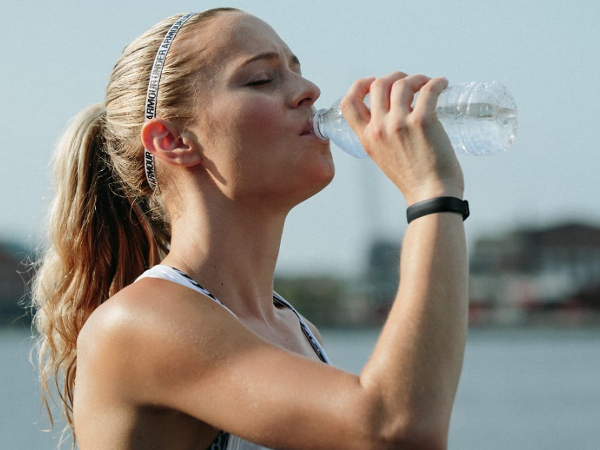Hydration is a critical element to optimal sports and exercise performance. All individuals should begin exercise well hydrated. A slight decrease is hydration leads to a dramatic decline in both physical and mental performance. This summer stay hydrated and maximise your training efforts.
Why is hydration important?
Hydration is important because it helps to maintain good blood volume, cardiac output, and delivery of oxygen to your muscles. Hydration also plays an important role in muscle contractions. Please note that a decrease in hydration can lead to muscle cramps. Hydration also helps to regulate core body temperature and eliminate body waste.
What are the main causes of dehydration?
One of the main causes of dehydration is due to the rise in body temperature in response to exercise. In response, the body sweats to dissipate excess heat so it does not overheat. By replacing fluids, post exercise, individuals reduce the risk of dehydration. How much water an individual needs is determined by the duration and intensity of activity, body composition, fat-free body tissues, and genetics. If the duration of physical activity exceeds an hour, individuals must also replace their electrolytes. The predominant electrolyte that needs to be replaced is sodium.
Replenish your hydration with our Syn-Tec Boost: https://scorpionsupplements.co.nz/supplements/syn-tec-boost/
How do I know if I am dehydrated?
The first sign of dehydration is a sudden and unexpected increase in heart rate. This is due to the lowering levels of blood volume. Also, an individual who is slightly dehydrated will have an increase rate of perceived exertion. They may comment about feeling tired, lethargic, and nauseous or may have a headache. Another sign of dehydration may be cramping.
How much fluid do you need?
For the body to function properly, water losses must be replenished by consuming beverages and foods that contain water.
Before training?
Slowly drink 250-600ml of fluid at least four hours prior to training.
During exercise?
The rate of rehydration will be determined by the duration of exercise and sweat rate of the individual. Aim to slowly drink 125-250ml every 15min. If exercise duration exceeds 60min, include a high sodium beverage to replenish sodium. Beware that drinking too much fluid can lead to hyponatremia (low blood sodium).
Post exercise?
If there is no need for rapid rehydration, then consume normal meals and fluid to rehydrate. Individuals needing a rapid and complete recovery should aim to consume 750ml of water (per hour) for every 2.2kg of bodyweight lost. Also include beverages high in sodium.
How can I monitor my hydration levels?
The simplest way to determine hydration is to weigh yourself before and after training. If there is a discrepancy in your weight, then you need to increase your fluid intake over the following one to two hours. Another simple method for determining your level of hydration is by monitoring the colour and volume of your urine. If your urine is dark in colour and the volume is relatively light, then you may be dehydrated.
Dehydration occurs when fluid losses exceed fluid intake. Dehydration, which is a 2% or greater loss in hydration, leads to decreased physical and cognitive performances and can predispose to serious medical conditions such as heat stroke. Sweating is the primary form of sweat loss but it is important to note that sweat rates vary from person to person, so it is important to have your own individised fluid replacement plan. Always monitor the levels of your hydration by thirst, urine colour and urine volume. This summer remember to take care of your body by staying hydrated.


